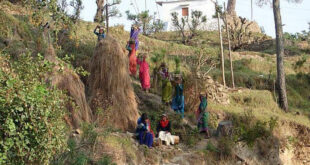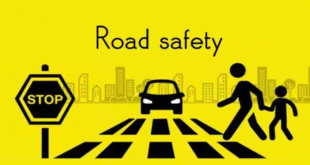Swachh Survekshan (Sanitation Survey) 2024-25 report was made public on 17 July, 2025.
The goal of the ‘Swachh Bharat Mission Urban 2.0’ is to make a city completely garbage
free and the primary goal of Swachh Survekshan is to encourage large scale citizen
participation and create awareness amongst all sections of society about the importance of
working together towards making towns and cities better places to reside in. In order to
encourage both civic bodies and residents, different categories of awards have been initiated
form 2024-25 such as Super Swachh League Cities with sub categories as per population –
Million Plus Cities (more than 10 lakh), Big Cities (3 lakh to 10 lakh), Medium Cities
(50,000 to 3 lakh), Small Cities (20,000 to 50, 000) and Very Small Cities (less than 20,
000) respectively. It is a special category within the Swachh Survekshan rankings
recognizing cities demonstrating exceptional performance in sanitation (Total 23 cities
recognized). The new generation clean cities have been recognized in the form of Swachh
Shehar (National Performance) category with the same mentioned sub categories (Total 15
cities recognized). Following the one city – one award principle the top performing cities
from each states have been recognized as Promising Swachh Shehars of State/UT (State
Performance) (Total 34 cities recognized). In order to ensure level playing field, a separate
matrix of indicators was developed, categorizing cities based on population. Special emphasis
has been laid on tourist destinations and high footfall areas to maintain sanitation standards in
key public spaces. Indicators have been simplified and structured into ten comprehensive
sections, covering the entire spectrum of urban sanitation and cleanliness. New indicators
such as Project Grounding, Cleanliness Target Units (CTUs) transformation have been added.
School-level assessment has been launched to integrate the values of Swachhta into the
mindset of the young generation. 3Rs- Reduce, Reuse, Recycle Approach was given the
utmost importance in assessing and awarding the cities/ towns.
Top 05 award winners in Super Swachh League Cities are: Indore (Million Plus Category),
Chandigarh (Big Cities Category), New Delhi Municipal Council (NDMC) (Medium
Cities Category), Dungarpur (Small Cities Category) and Bishrampur (Very small Cities
Category). Indore bagged the cleanest city tag for 8th year in a row. Municipal Corporation
Indore has built up a robust system with public participation, setting examples for others to
follow suit. In the category of National Ranking (Swachh Shehar) Ahmedabad topped in
Million plus category, Mira Bhayandar in Big Cities Category, Dewas in Medium Cities
Category, Panaji in Small Cities Category and Bilha in Very Small Cities category. Lalkuan
in Nainital has been recognized as Promising Swachh Shehar from Uttarakhand. It is
heartening to learn that most cities/towns in Uttarakhand have fared noticeably well in the
Swachh Survekshan which will encourage them to improve further in years to come. While
Dehradun registered marginal improvement in the National Rankings (Swachh Shehar
category) of the cleanest cities, it slipped into 13 th place in the state performance (Promising
Swachh Shehar of Uttarakhand category) once being on top earlier. Ghansali stands at 107 th
place (Last) in this category in Uttarakhand. Secunderabad was declared the Cleanest
Cantonment Board and Prayagraj the Cleanest Ganga Town. Hardwar stands at 18 th
place in this category. (Reference Swachh Survekshan https://ss2024.sbmurban.org).
Principle of sanitation lies in the principle of ‘Sanskar aur Swabhav’ (Values and Nature)
as rightly mentioned by the Hon’ble President of India Smt. Droupadi Murmu. Inclusion of
schools in the survey is a welcome move because seeds of values (Sanskar) are sown in the
young minds there, which when looked after carefully will transform into their nature
(Swabhav). It is the general practice so far that civic bodies gear up for the Survey few
months before it is physically carried out. Citizens’ participation is minimal in maintaining
the highest standards of sanitation due to the lack of self- discipline and civic sense. In
Uttarakhand, door to door garbage collection has seen some improvement but lot more is
required to be done in order to achieve the goal of 100% outreach and source segregation.
Despite the removal of bins from public places, garbage is being thrown at those places every
now and then. Civic bodies levy a paltry collection fee of Rs 70/-, yet garbage filled
polythene bags are being disposed into the rivulets, vacant plots, drains and on the sides of
roads etc. Remnants of betel leaves, tobacco, paan masala etc. are being spat wherever it is
possible or convenient to do so. Civic bodies are putting flower pots or planting saplings in
such dark zones. A municipal councilor (Parshad) Shri Alok Kumar (Dehra Khas Ward No.
72) in Dehradun has started serving tea at such places in order to sensitize public against this
menace. Garbage is strewn around at will and there seems no enforcement against this
uncivilized act. Being a tourism state this sight is really heart wrenching at any time. In a
family visit to Khirsu, Pauri, a beautiful hill station, we were aghast to see the polythene
bags, liquor bottles and hospital waste strewn around in an Eco Park managed by Forest
Department. We all family members including children collected some non- biodegradable
waste materials and disposed them off into the garbage bins. A filthy place near a dispensary
at Ranipokhari, Dehradun was improved through a plantation drive by the DPS School
Rishikesh, Dehradun as a community service. Alas, good Samaritans are there in the society
but they are outnumbered by the law breaking counterparts.
School is the right place for inculcating values in young ones. Value education imparted in
school leaves indelible imprints in young minds and transforms them into responsible citizens
if nurtured carefully. Decision of Uttarakhand Govrnment to include Bhagwad-Gita in
school curriculum will really help instill values in students for the betterment of the civil
society in the long run. It will also help enhance their consciousness and sensitivity for
conserving the environment and protecting Mother Nature.
My recent visit to Thailand for attending an International Conference on Climate Change
gave some memorable moments in form of no honking on roads, disciplined traffic, quiet
people and garbage transportation by closed trucks in water proof bags. Proper disposal
of garbage at the treatment plant is really praise worthy. Strict rules, better compliance, calm
and disciplined nature of Thai people in general plays a major role in it. A colleague argued
that with a small population, everything is manageable. Partially it is true but not fully, as
combination of values and nature influences our behaviour in the society.
Till we fully practice the principle of education, sensitization and enforcement up to the
hilt for deliverance through efficient policies, and ensure their execution through the
committed machinery, things will not improve to the satisfaction. Great political will, good
administrative acumen, better ecosystem of transport, segregation and recycle, spread of
awareness, rewards and penalties collectively will help improve the ailing system. I am sure
with concerted efforts of all stake holders; cleanliness will see a boost and Uttarakhand will
certainly turn into a favourite tourist destination not only in India but abroad also.
Dr Prashant Thapliyal
Associate Professor
Army Cadet College
Indian Military Academy Dehradun
 National Warta News
National Warta News




